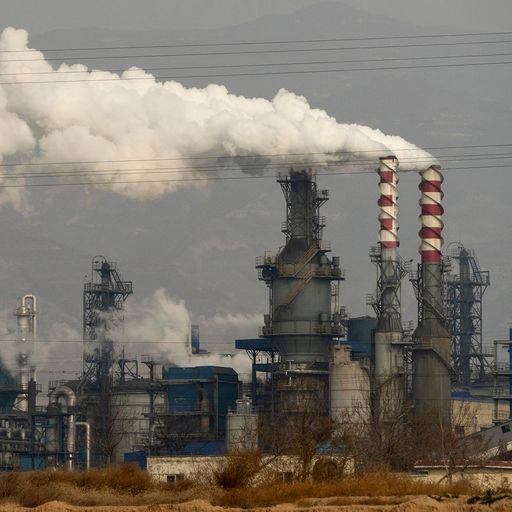‘Positive trend’ in global efforts to reduce future coal power – think tank report
In a report from the Third Generation Environmentalism (E3G) think tank, the UK is praised for its leadership on aiming for a future without coal power. At the other end of the spectrum, China, is identified as being the largest contributor to potential coal plants.

The global effort to end reliance on coal power has a “positive trend”, according to a think tank report, as the world looks ahead to the COP26 climate summit.
Third Generation Environmentalism (E3G) released a report on the “collapse” of the new coal power plant projects since the 2015 Paris Climate Agreement.
E3G examined the global “pipeline” of projects – coal power facilities that have been proposed and are waiting to be designed, licenced, built or started up.
The report states that, in the past six years, 76% of the “pipeline” by forecasted power generation has been cut worldwide.
It adds that 42 countries have committed to a “no new coal” future – and another 41 are in a position to make the change as they have cancelled their pipeline.
The report says these nations can “respond to UN Secretary General Guterres’ call for ‘no new coal by 2021′”.
Leo Roberts, research manager at E3G and a co-author of the report, said: “The 41 countries in a position to commit to ‘no new coal’ can now join those who have already done so since Paris.
“Those countries still considering new power plants should urgently recognise the inevitability of the global shift away from coal, and avoid the costly mistake of building new projects.”
The UK is praised for its leadership on the matter, through its advocacy for “consigning coal to history” while hosting COP26 later this year in Glasgow.
And E3G highlighted: “In 2017, the UK and Canada co-created the Powering Past Coal Alliance (PPCA), with members committing to no new coal plants; ending financing of coal power generation; and to delivering a coal phase out in line with Paris Agreement timeframes.”
The UK has committed to turning off all its coal power plants by 2024 – although there are concerns about a proposed coal mine in the northwest of England, which would be used to assist in steel production.
Elsewhere in the world, the E3G report praised the Netherlands, Germany and Greece for their leadership on the issue – including the cancellation and decommissioning of newly built plants.
Chile, the US, Japan and South Korea are singled out as “movers” for turning away from a future reliance on coal.
While South Korea and Japan were praised for ending financing for new coal power projects internationally, it was highlighted they have a sizable number of coal projects planned themselves.
Meanwhile, China was identified as still financing foreign coal projects in 20 countries.
China makes up 55% of the global “pipeline” of coal projects by power generation.
India, Vietnam, Indonesia, Turkey and Bangladesh make up another 27% between them.
The remaining 18% of the “pipeline” is split between 31 countries – 16 of which only have one planned new coal plant.
Australia, Colombia, Mexico and Poland are all singled out as “laggards” for their government’s desire to keep using coal power – in some cases provided subsidies.
The report highlights that new coal projects tend to be politically led, with policy holding back investment on green alternatives.
Subscribe to ClimateCast on , , or .
Chris Littlecott, associate director at E3G and a report co-author, said: “The economics of coal have become increasingly uncompetitive in comparison to renewable energy, while the risk of stranded assets has increased.
“Governments can now act with confidence to commit to ‘no new coal’.”





